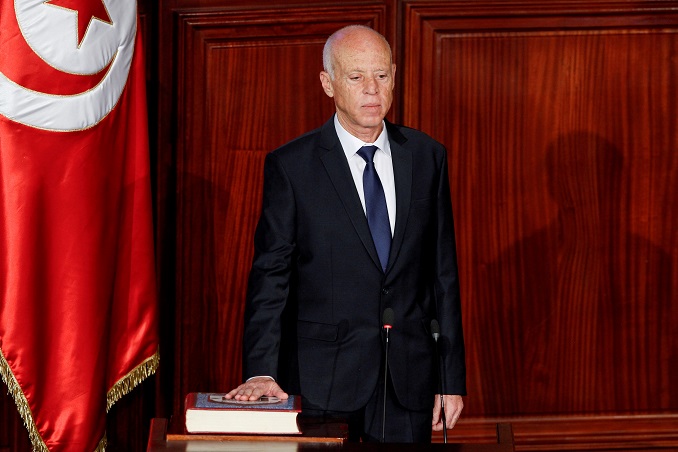Last updated on October 5th, 2021 at 08:09 am
More than 5,000 people demonstrated in Tunisia on Sunday in support of President Kais Saied, whose power grab has sparked controversy in the Arab Spring’s birthplace. The pro-Saied throng in Tunis, estimated at 3,000 people, outnumbered those who had assembled a week earlier to oppose him.
“The people want parliament to be dissolved,” The crowd assembled on Bourguiba Avenue, Tunis’s main artery, yelled, “We are all Kais Saied, we are all Tunisia.” After months of political gridlock, Saied fired the prime minister, suspended parliament, and granted himself judicial powers on July 25, a move he followed up with measures allowing the president to rule by decree.
Saied was arrested Sunday, according to their lawyer, Samir Ben Omar, in the latest detention of a legislator after the immunity of MPs was revoked under the suspension. Saied, who was elected in late 2019 on an anti-system ticket, has stated that his actions are intended to “rescue” Tunisia from “imminent jeopardy” and a socio-economic catastrophe exacerbated by the Covid-19 pandemic. Security personnel were out in force on Bourguiba Avenue on Sunday, particularly in front of the municipal theatre, where the protest took place.
Related Posts
The marchers waved Tunisian flags and held placards that said, “The people want a constitutional amendment” and “Saied, official spokesman of the people.” A mob of 2,000 people gathered on Bourguiba Avenue the previous Sunday to oppose what detractors have dubbed Saied’s “coup d’etat.” Some yelled “Get out, get out,” a phrase that began in December 2010 and resulted in Tunisia’s dictator Zine El Abidine Ben Ali’s departure in January 2011, sparking Arab Spring protests across the region.
MP Abdellatif al-Alaoui and Zitouna TV personality Amer Ayad have been arrested on suspicions of “plotting against state security,” according to Ben Omar. They both criticized the president’s choice of Najla Bouden as Tunisia’s first female prime minister on September 29, with Ayad scoffing that she would just serve as a “servant of the monarch.”

